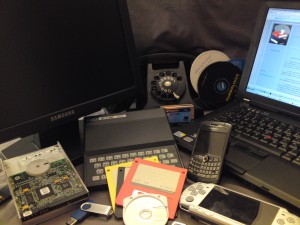Blockchain

The Internet changed our lives in numerous ways, and became a great equalizer for society. It changed the way we do business, and made the world a little smaller. We now have another technology that will go a step further. It is called blockchain.
What is blockchain? First, blockchain is a distributed database, meaning data is stored in multiple places, not centrally located. The distributed database keeps a record of each transaction, known as a block. It is important to note that everyone has complete access to the data, but no one person or party has control over the data. Second, the data is on a peer to peer network, meaning that there is not a central location in which to access, yet each node stores and communicates information forward to other nodes or peers. Each user in blockchain has a unique ID made up of 30 plus alphanumeric characters, very similar to your computer which has a unique media access control MAC, number which connects to the Internet. Transactions can only happen between blockchain addresses and once entered into the database, the record cannot be changed because the “blocks” of information are linked or “chained”, to every previous transaction, thus the name, blockchain.
Many people have not heard of blockchain and thus do not yet know of the digital tsunami which is slowly approaching. But there are many businesses today that are using blockchain and transforming their industry. I thought I would give you real examples so that you can get an idea of not only blockchain, but how the technology is changing the way we do business.
I am sure bitcoin comes as no surprise to you as a technology that uses blockchain. However, it may surprise you that many financial institutions are looking at blockchain, which would be able to provide access to billions of people who do not have access to a traditional bank.
Additionally, the ability to send money anywhere instantly with low fees is also helping remittance based applications to raise in the financial banking sector. Overall, blockchain is helping banks to be faster, more efficient and secure.
Supply chain management is another area where blockchain technology is making improvements in the process. Walmart, for example, is using blockchain to monitor produce from the farm, where it is grown, to the warehouse where it is packaged, to the truck that transports the food, to the floor of the supermarket, easily identifiable by a barcode. Not only does it help in the event of a recall, but Walmart is also able to cut deficiencies by understanding their supply chain and cutting time delays, as well as mistakes made by humans. In addition, retailers are also discovering savings in labor costs, and waste in an emission which gives Walmart the ability to control their footprint in the environment.
Pharmaceuticals are another industry that is being transformed by blockchain. A new seal has been developed with an NFC chip that wraps around the top of a prescription bottle. The NFC chip is used with blockchain to not only track prescription drugs but to secure them. The new seal contains information about the contents in the prescription bottle and the location. Since prescriptions are regulated, another layer of auditability is now provided, as well as ensuring that the medication is authentic.
I have only given you a few of the blockchain technologies, but there are many more, such as providing accuracy in healthcare insurance, ensuring that your money goes to the right place with charities, verifiable ledger of people for voting, increase security for government systems, unemployment benefits, energy management and allowing use of a private grid, and online music paid directly to musicians, and the list goes on with possibilities.
Blockchain is equalizing the digital playing field. It is allowing all consumers to play on the same level globally. It is taking down the borders and giving Connected a whole new meaning.






